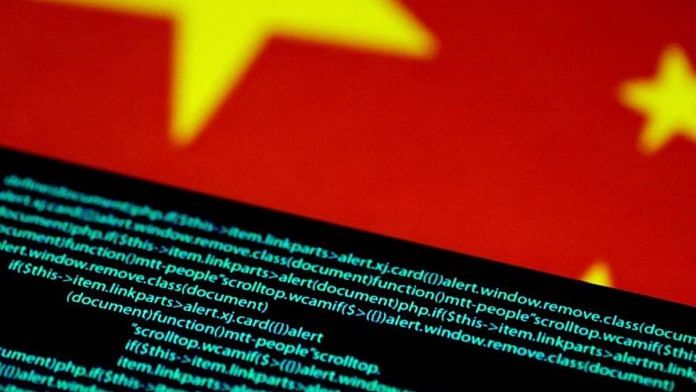The world is grappling with the extensive application and misuse of Artificial Intelligence-based tools, which have become a new focal point for global cooperation and competition. China, like other major players, is vying to cement its status as an AI superpower, actively working to secure a prominent position in emerging technologies.
The country has allocated ample resources to AI research and development. A majority of publications in the field originate from Chinese institutions.The percentage of AI research papers coming from China has seen a notable surge, climbing from 4.26 per cent (1,086 papers) in 1997 to 27.68 per cent in 2017 (37,343 papers). Now, almost half of the world’s 36,000 AI companies are in either China or the US.
Beijing has dedicated significant funds to this endeavour, with an anticipated investment of $38 billion by 2027. Additionally, according to IDC’s Forecast, China’s AI market is projected to exceed $26 billion by 2026. Moreover, just last week, China’s Taiyuan Satellite Launch Center propelled the world’s first in-orbit AI commercial hypersatellite, aboard the Smart Dragon-3 (SD-3) carrier rocket.
Roadblocks in China’s AI-development
Despite substantial investments and resource allocations in its AI mission, China is grappling with a host of challenges. Foremost among these are the US’ export restrictions on advanced memory chips and limitations on technology transfer to China, prompting the country to seek domestic solutions. These bans are widely interpreted by most Chinese social media users as efforts to constrain China’stechnological advancement.
Its problems go beyond US regulatory constraints, though. China’s own imposition of bans on Western search engines and social media platforms propelled it toward self-reliance, driving the development of indigenous technologies and software. Notably, Baidu introduced a localised version of ChatGPT, named ERNIE (Enhanced Representation Through Knowledge Integration) Bot, accessible solely through registration with a Chinese phone number and currently available exclusively in Chinese language. Nonetheless, people are expressing dissatisfaction with ERNIE’S quality, frequently comparing it with the ‘superior’ ChatGPT.
The proliferation of unverified texts and deepfakes originating from Chinese sources poses significant challenges for countries lacking access to and knowledge of Chinese AI technologies. Additionally, the lack of transparency and understanding regarding these technologies may further exacerbate concerns about the dissemination of inaccurate or misleading content, ultimately bolstering China’s influence operations and limiting the ability of other countries to counter potential misinformation effectively.
Besides, Beijing’s deployment of AI for military purposes raises substantial concerns among the US and other major stakeholders. The considerable investments by China’s military and defence industries in robotics, swarming techniques, and other AI applications have the potential to significantly alter the military balance in China’s favour.
In addition to advancing its own AI technologies, China actively seeks collaborations with countries like Russia. Consultations between China and Russia on military AI applications are intensifying. Beijing’s prioritisation of AI integration into its military strategy further complicates ongoing discussions about AI regulations and governance, adding a new dimension to the competition between the US and China.
Also read: China must stop seeing India as inferior. Its own scholar calls Delhi ‘stronger, assertive’
Can China lead AI governance?
Surprisingly, China is proactively crafting regulations to govern AI, demonstrating a willingness to engage in international cooperation on this front. Last year marked a significant milestone as China became one of the first countries to enact legislation specifically targeting generative AI.
On 23 May 2023, during the 12th Meeting of the Cyberspace Administration of China, the Interim Measures for the Management of Generative Artificial Intelligence Service were adopted. These measures mandate that generative AI systems must “adhere to core socialist values and refrain from inciting subversion of state power or overthrowing the socialist system.”
Additionally, at the AI Safety Summit in the UK last November, China pledged to collaborate with several countries – including the US, the United Kingdom, Brazil, India, and Saudi Arabia – which was outlined in a joint communiqueaimed at ensuring the safety and responsible development of AI technologies.
Despite promising initial strides, there remains a concern that, as the risks of AI become more apparent, China could potentially weaponise AI capabilities and disengage from collaborative efforts, echoing its stance on climate change.
Engaging in dialogue and cooperation with key players will not only demonstrate China’s commitment as a responsible stakeholder but also acknowledge the importance of addressing ethical and safety concerns in AI development. However, the future trajectory of China’s AI policies depends on the concessions it receives from the US and its allies, as well as on whether the geopolitical landscape shifts in its favour.
Sana Hashmi, PhD, is a fellow at the Taiwan-Asia Exchange Foundation and George HW Bush Foundation for US-China Relations. She tweets @sanahashmi1. Views are personal.
(Edited by Zoya Bhatti)



